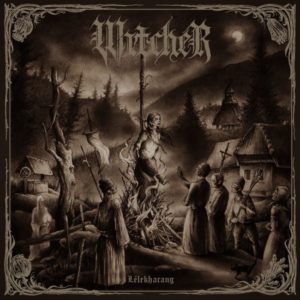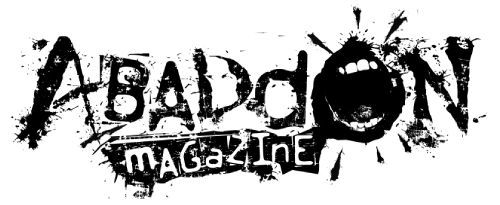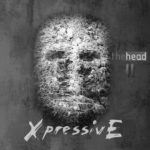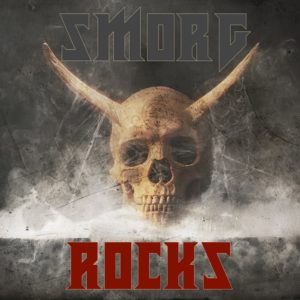 Label: Filosofem Records / Beverina Productions / Casus Belli Musica
Label: Filosofem Records / Beverina Productions / Casus Belli Musica
Date: October 8th, 2022
No, I haven’t read the books, played the video game nor have I seen the series, meaning that I don’t have a clever pun regarding Andrzej Sapkowski’s most famous work. What I do know about is Mr. Roland Neubauer and his longtime work in the field of black metal. At least with his two main focuses, Vrag and this here Witcher. Though he is only the uglier half of Witcher, the much more beautiful being Ms. Karolina Gere.
With these two separate entities, Mr. Neubauer explores two different viewpoints to black metal creation. Mind you, only the creation differs between them, as they both strive for the same goals, but from two musical perspectives. Atmospheric black metal is the name of the game but while Vrag is a much rawer, basic and essential black metal band, Witcher goes for the epic, almost symphonic approach.
Still, the bonding power between the two must be in the elongated compositions, based around repetitive patterns and a somewhat melancholic feel. Adding keyboards is the separating point. With Ms. Gere’s work on the instrument Witcher gains yet another chance to develop the black metal soundscape Mr. Neubauer is well versed in.
Now, if you have read my review of the latest Vrag album, you already know that the man behind the two bands has grown as a composer. This growth also shines through in Witcher. “Lélekharang” is a mature and well-rounded work that, throughout the six tracks, forms a picture of darkness and uncertainty one can relate to with the included lyrics. Well, six tracks… The last one is Beethoven’s “Moonlight Sonata” which fits the bill perfectly, but is hardly the work this Hungarian duo can claim for themselves. Plus the first track on the record is a keyboard introduction, not particularly unexpected or bringing of an atmosphere particularly tied to Witcher. Still, both mentioned pieces stick to the material at hand. No doubt about it. I’m just saying they are not what makes “Lélekharang” stand out.
What does make it stand out are the other four compositions. While absolutely submitted to minimalist black metal foundation, similar to what’s found in Vrag as well, complemented with substantial keyboard impact, Witcher rises above the majority of acts treading the same epic paths. The skill in crafting distinguishable musical parts is obvious. Comes with experience, I guess, though there are many with much more experience that fail in doing so.
The keys being the “x factor”, one should not make a mistake of thinking the other instruments are lazily going through the motion. Like guitars, for example. I’ve written above that they are on the minimalist and repetitive side. That’s true, and that kind of approach to the instrument allows for the atmosphere of anguish, melancholy or misanthropy to shine through. However, the strings do not serve only so that the keyboards have somewhere to lean on. Namely, lead guitar pieces offer finely crafted melodies that enhance the experience, not letting the listener drown in excessive repetitions. Intersections between the two leading instruments are exquisitely composed so that there’s no sense of them competing one another, but supplementing and pushing each other forward, thus making each track further elaborated.
The task of breaking any possibility of boredom and slumber also fell before the drums. One cannot quite accuse the instrument of being all that playful, but it is most certainly able to “break the habit”. Whether this or that tempo, it avoids the monotonous insistence upon a singular pattern. That way a whole lot of dynamism is inserted in “Lélekharang” which, in turn, makes the listening experience much more rewarding.
Bass guitar, on the other hand, adds little to nothing to the overall charm of the record. Its presence is more of a necessity than an actual driving force of anything on “Lélekharang”. The same could go for the vocals, too. But the thing is that Mr. Neubauer’s screams are fairly convincing and strong. Still, I get the feeling the voice should’ve been pushed further up in the mix. It sounds as if it is in the same line with the rest of the instruments, instead of it having its own ground to stand upon. Curiously enough, the same cannot apply to the recent Vrag material, although it’s basically the same soundscape setting. But that’s a minor remark to an album that fulfills its purpose.
A much bigger question springs to mind when looking at the visual side of “Lélekharang”. The front cover depicts a burning of a witch. With that in mind, you would expect somewhat of a theme to the record. But the lyrics do not include any of it. Oh, and just so we’re clear, I do not speak Hungarian, but Witcher were nice enough to include English translations in the booklet. The album’s title, for instance, translates to “Soul Bell”, which could loosely be based on the church’s lookout for anyone suspicious of witchcraft. But it’s not, according to the lyrics of the song. The actual theme for the record is much more self-reflecting. More befitting the image on the back of the jewel case, where an old woman (let’s call her Fatum) is knitting what can (after the repeated auditions of the record) only be understood as the intertwined threads of human destiny.
“Lélekharang” offers a lot of looking inwards. Bleak prospects, bordering on a depressive outlook are a neat duet with such grim musical background. However, the epic side of Witcher doesn’t allow for the utter disaster of one’s hopes and ultimately does bare the light at the end of the tunnel. Even the lyrics, which are definitely not responsible for the bright side, do not bring suicidal thoughts to mind. Rather, they really inflict introspection and a higher sense of respect towards the self. Because, in the end, the self is the only one that does not fail…
With this I just about close the review. Essentially, Witcher hands out nothing really new to the table. The Hungarian duo is using the same techniques we’re being treated with for decades now. Basic, atmospheric black metal that came out of Scandinavia in the late 1990’s and infested the whole world. However, Witcher also doesn’t succumb to the generalization and abuse of clichés. The creativity on “Lélekharang” is strong and definitely leaves an imprint. Perhaps the biggest mistake is that Mr. Neubauer handled the releasing of the album himself. A bigger label with wider reach could certainly bring more recognition to the band that readily deserved it with this material.






